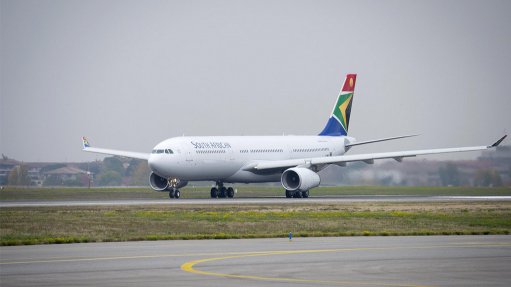
The South African Airways Pilots Association (SAAPA) has hit back at claims by the Department of Public Enterprises (DPE) that a regulating agreement dating back to 1988 - which covers the cost structure for the airline's pilots - is too expensive to allow the restructured flag carrier to get off the ground.
SAAPA says hanging onto its favourable regulating agreement is not the key issue, but rather the selection criteria proposed for retrenching and then rehiring pilots. It says it is willing to engage with SAA's business rescue practitioners and shareholder, the DPE, on establishing lawful selection criteria.
This follows an announcement by the business rescue practitioners that all 383 members of SAAPA would face a "lockout" on Friday, in a bid to force them to accept the terms of a new employment agreement.
SAA has been in business rescue for more than a year and employees have not received salaries since May this year. Since the lockdown started at the end of March, it has undertaken only some repatriation and cargo flights.
SAAPA says in terms of its recognition agreement, it is the only union which can negotiate for all pilots, whether they are part of SAAPA or not. The lockout was announced on Wednesday after negotiations with the union failed. Those under "lockout" are not allowed to render any services or get paid.
The move is supported by the DPE, which argues that, in order for a restructured SAA to attract a much-needed strategic equity partner, it is critical to reduce what it regards as the too-high cost structure relating to pilots under the existing agreement. The agreement has undergone adjustments since 1988, the last time being in 2014.
SAAPA says it is taking legal advice regarding the lockout.
The main issue SAAPA still views as a problem is the proposed selection criteria for the retrenchment of SAA pilots and the subsequent re-hiring criteria of the 88 pilots, which it is foreseen will likely be needed once a new SAA takes to the skies. In SAAPA's view, it comes down to retrenching and rehiring "based on race".
"SAAPA's regulating agreements with SAA are not the reason why the airline has failed financially as well as in transforming its pilot body," says Captain Grant Back, chair of SAAPA. "That responsibility lies with the Department of Public Enterprises as shareholder as well as with the management at SAA."
Back says all major airlines use seniority as criteria for career progression for pilots. This is also followed by the SA Air Force.
Back says SAAPA has engaged actively and in good faith with the rescue practitioners and the DPE since the start of the business rescue process over a year ago, offering expertise and concessions. He says, over the last few months, SAAPA has already agreed to the majority of the demands made by the company.
This includes agreeing to cancel the regulating agreement and replacing it with a new collective agreement, valid for three years. SAAPA has also agreed to reduce salaries by up to 50% and to the removal of the succession clause. The union further agreed to new procedures on hotel selection, reduced leave and sick leave allocations, and a reduced daily meal allowance.
According to Mashudu Raphetha, president of the National Transport Movement, SAA pilots belonging to NTM - the majority of whom are black - are not affected by the impending lockout.
"Our pilot members are excited about the prospect of flying for the new SAA," he said.
The International Air Transport Association (IATA) distanced itself on Thursday from what it says is a false assertion made in a press statement by the DPE that the airline industry body had compared SAA pilots' remuneration with those at other airlines. The DPE statement claimed that IATA found SAA pilots to earn the second most globally.
"As an industry body, IATA represents, leads and serves the industry on matters of common interest, but it may not become involved in individual airlines' commercial or employment affairs.
"For this reason, IATA is not privy to such details and has not conducted a comparison of SAA pilots' remuneration or provided any such information to the DPE," stated IATA.